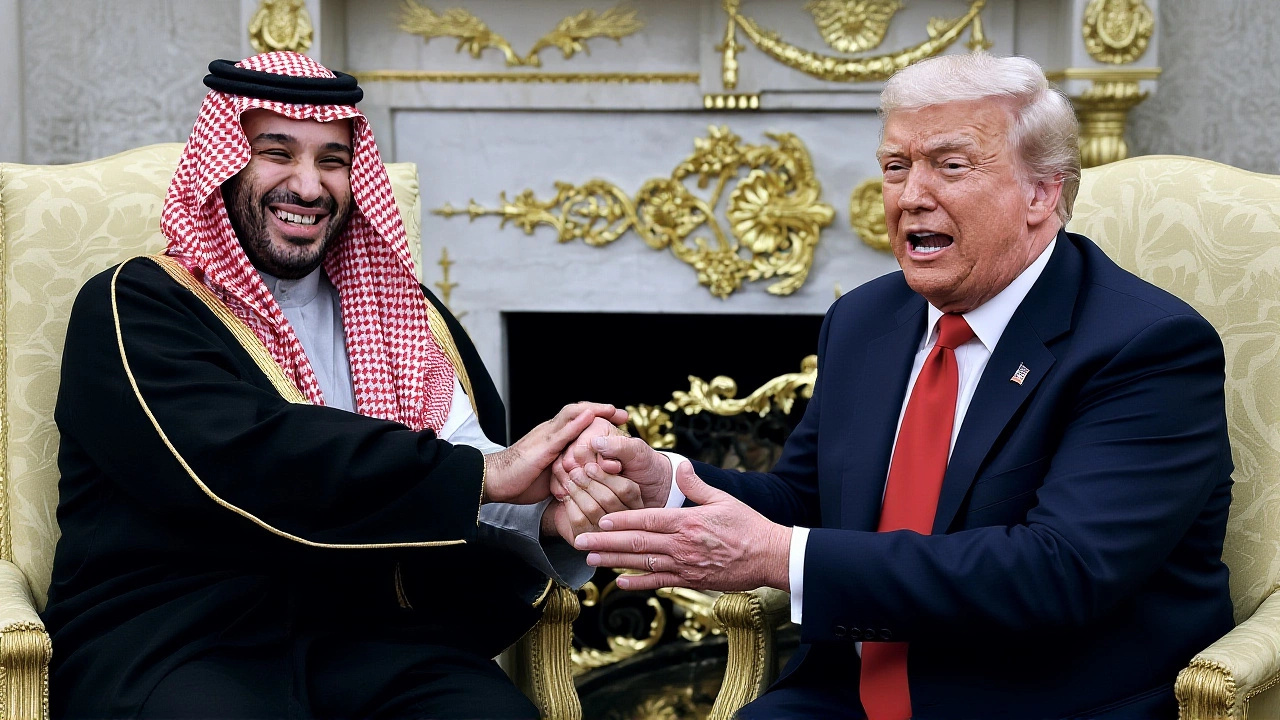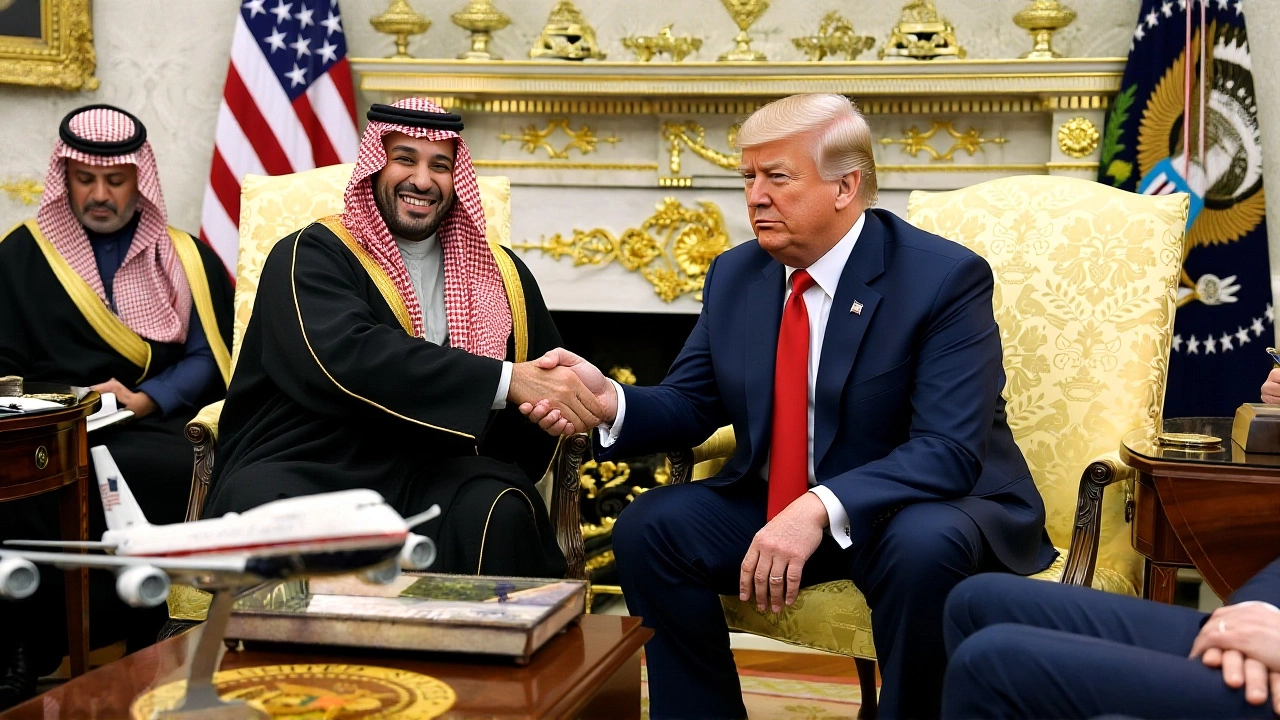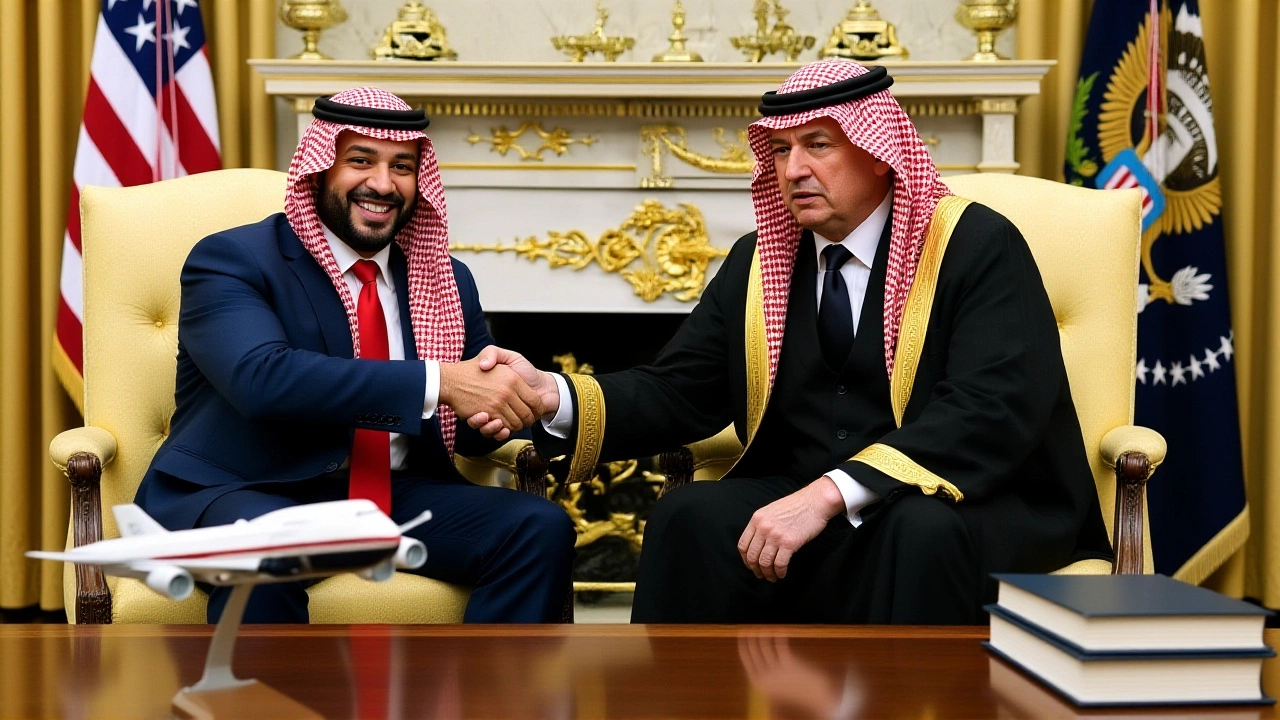When Donald J. Trump welcomed Mohammed bin Salman into the White House’s Oval Office on November 20, 2025, he didn’t just offer a handshake—he offered absolution. In front of reporters, Trump dismissed the 2021 Central Intelligence Agency conclusion that MBS had personally approved the brutal 2018 murder of Jamal Khashoggi, a U.S.-based journalist and Washington Post columnist. "Things happen," Trump said, when pressed by Mary Bruce of ABC News. And with that, the moral weight of a state-sponsored killing vanished into the air of deal-making.
Why This Meeting Was a Political Earthquake
It wasn’t just any visit. Khashoggi, a critic of Saudi Arabia’s monarchy, was lured into the Saudi consulate in Istanbul on October 2, 2018, where a 15-member hit squad dismembered his body. The CIA’s final assessment, released in February 2021, stated with high confidence that MBS, as Crown Prince and Prime Minister, had authorized the operation. Yet here he was, less than a week after that report became public again in media retrospectives, sitting across from Trump in the same room where presidents once confronted dictators. Trump didn’t just ignore the facts—he weaponized them. "We have to focus on reality," he told reporters, linking 9/11 to Saudi relations in a way that twisted history. "Bin Laden used Saudi people to destroy the American-Saudi relationship," he claimed, implying that holding MBS accountable would play into the hands of terrorists. It was a rhetorical sleight-of-hand: turn a human rights atrocity into a national security argument.The $600 Billion Bargain
The real reason for the meeting? Money. Trump didn’t just mention Saudi investments—he haggled over them. "You’ve promised $600 billion," he told MBS. "Let’s make it $1 trillion." The number wasn’t casual. It echoed a 2017 pledge made during Trump’s first visit to Riyadh, where he famously signed $110 billion in arms deals—later revised upward to $350 billion in potential contracts. Now, with the U.S. economy slowing and inflation lingering, Trump sees Saudi capital as a lifeline. The crown prince, for his part, is eager to rehabilitate his global image after years of isolation. This isn’t about diplomacy. It’s transactional. The Kingdom of Saudi Arabia wants legitimacy. Trump wants a financial boost. And the journalist who died? He’s become a footnote in a balance sheet.
History Repeats—But With Less Shame
Trump’s defense of MBS isn’t new. Back in October 2018, after Khashoggi’s murder, Trump said: "It could very well be that the Crown Prince had knowledge of this tragic event—maybe he did and maybe he didn’t!" That was the moment the world realized: moral clarity had no place in Trump’s foreign policy. Now, five years later, he’s gone further. He’s not just denying culpability—he’s rewarding it. The Washington Post, where Khashoggi wrote his final columns, called the meeting "a betrayal of journalistic integrity." The 9/11 Family Steering Committee, which has long accused Saudi officials of funding al-Qaeda, released a statement: "We are not surprised. But we are ashamed."What This Means for U.S. Values
The State Department has remained silent. No official condemnation. No diplomatic protest. That silence speaks louder than any statement. For years, U.S. administrations have used human rights as a rhetorical cudgel against adversaries—China, Russia, Iran. But when the partner is Saudi Arabia, and the price tag is high enough, those principles evaporate. Hayes Brown of MS Now Daily put it bluntly: "Rolling out the red carpet for MBS marks the conclusion of what little remained of his pariah status." Trump didn’t just rehabilitate him—he elevated him. And in doing so, he sent a message to autocrats everywhere: if you have money, if you have oil, if you can deliver a deal, your crimes will be forgiven.
What’s Next?
The Senate Foreign Relations Committee has signaled it may hold hearings in January 2026 on U.S.-Saudi ties. But with Republicans controlling the chamber, any push for accountability faces steep odds. Meanwhile, Saudi Arabia is already moving to lock in investments: reports indicate a $15 billion AI infrastructure deal with U.S. tech firms is in final talks. As for Khashoggi’s fiancée, Hatice Cengiz? She’s still waiting for justice. She’s not in the Oval Office. She’s not on the news. But she’s still alive—and still asking why the world looks away.Frequently Asked Questions
How did the CIA reach its conclusion that MBS approved Khashoggi’s murder?
The CIA’s 2021 assessment relied on intercepted communications, forensic analysis of the killing team’s movements, and testimony from Saudi insiders. One key piece of evidence was a phone call between MBS and the head of his personal security detail hours after Khashoggi entered the consulate. The team that carried out the killing reported directly to MBS, and the operation was planned using a secure Saudi government channel. No other official had the authority to order such an action.
Why is Trump so focused on Saudi investments now?
Trump’s 2024 campaign relied heavily on promises of economic revival, and Saudi capital is seen as a key tool to fund infrastructure, tech, and energy projects. With inflation still above 3% and interest rates high, the administration views Saudi sovereign wealth funds—valued at over $800 billion—as a potential source of private investment without adding to the national debt. MBS has already pledged $200 billion toward U.S. renewable energy and AI startups.
What’s the legal status of MBS in the U.S.?
MBS is not under indictment in the U.S., and no U.S. court has charged him. However, the 2020 Khashoggi Ban, signed into law under the Global Magnitsky Act, prohibits him from entering the U.S. unless the president waives it—which Trump has now done. Legal experts say this waiver sets a dangerous precedent: it allows any foreign official accused of human rights abuses to bypass U.S. law if the president chooses.
How have U.S. allies reacted to Trump’s embrace of MBS?
European leaders, including Germany’s Chancellor Olaf Scholz and France’s President Emmanuel Macron, have privately expressed alarm. The EU is reconsidering its arms export licenses to Saudi Arabia. Canada, which has long supported Khashoggi’s family, has frozen new trade talks. Even Israel, traditionally aligned with Saudi Arabia, has signaled discomfort—publicly reaffirming its support for press freedom while quietly urging Washington to reconsider the optics of the meeting.
Is there any chance MBS will face justice?
Domestically, Saudi Arabia has convicted five low-level operatives in a closed trial, sentencing three to death and two to prison. But no senior official has been held accountable. Internationally, a case is pending at the International Criminal Court, but without U.S. cooperation or evidence sharing, it’s unlikely to proceed. Justice for Khashoggi now depends on whether future U.S. administrations reverse Trump’s waiver—and whether the public demands it.
What does this mean for journalists worldwide?
Khashoggi’s murder was meant to intimidate dissidents. Trump’s embrace of MBS sends a global signal: if you’re powerful enough, killing a journalist won’t cost you anything. Reporters Without Borders has already documented a 22% increase in self-censorship among Middle Eastern journalists since the meeting. The message is clear: speak out, and you might disappear. But if you’re rich enough, you can walk into the White House and shake hands with the president.
